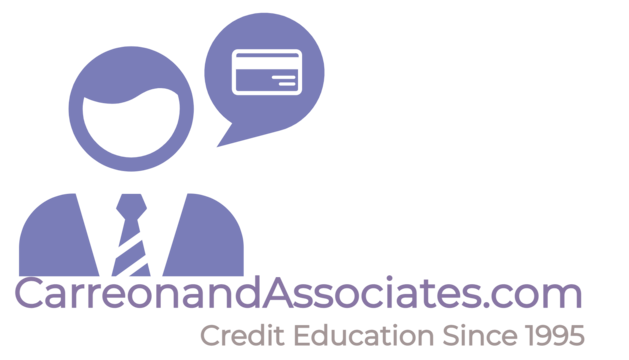What is a Money-Market Account? Benefits, Drawbacks & Features
/
Unlocking the Power of a Money Market Account: Exploring its Unique Features, Benefits, and Drawbacks
When managing your finances effectively, choosing the right type of bank account can be crucial to reaching your financial objectives. A unique option that might catch your attention is a money market account, an innovative product with various features different from those other bank accounts provide. This article explores different aspects of this type of account: its definition, superior capabilities compared to other related products, and drawbacks.
To start with, what exactly is a money market account?
A hybrid financial instrument combines elements found both in savings and investment vehicles - designed primarily for individuals seeking higher returns while still having enough flexibility to access their funds whenever needed.
How does a Money Market differ from other similar products?
Unlike standard saving accounts, maintaining an active money market account often requires minimum balances above average thresholds and offers tiered interest rates depending on current balance levels inside an individual’s fund portfolio; this means better returns for higher balances inside the account.
Considering investing in something low-risk but stable? You might be interested in opening up a money market account! These accounts invest in short-term securities like Treasury bills, certificates of deposit (CDs), and commercial paper. Despite being relatively conservative investments, there are many advantages to having a money market account.
They usually provide higher interest rates than traditional savings accounts - perfect for those looking to grow their savings over time.
Plus, unlike other investment options, these types of accounts offer flexibility when it comes to accessing your funds; most come with check-writing privileges and allow for ATM withdrawals and online transfers.
Finally (and perhaps most importantly!), these types of accounts are typically insured by the Federal Deposit Insurance Corporation (FDIC) up to the maximum allowed by law, which means that even if something happens with your bank or financial institution down the line, you won't have anything to worry about because your deposits will be protected.
If you're considering opening a money market account to balance high-risk investments in your portfolio, this option has pros and cons that deserve careful consideration.
On one side of the equation are benefits like security and stability; on the other are costs like minimum balance requirements that may be higher than you've encountered previously. This means you'll need enough funds upfront or risk paying fees or lower interest rates if your balance falls below the limits set by the bank or credit union offering this service.
Another issue is limited growth potential. While money market accounts can provide higher returns compared to standard savings options, returns tend to be lower than what stock markets and bond yields can offer savvy investors looking to maximize the long-term growth potential of their investments. It’s worth noting that inflation risk affects all types of financial instruments, including money market accounts.
If prices rise faster than your return rate, your purchasing power might diminish over time without trying proactive measures to prevent it. Choosing whether or not to invest in a money market account requires careful consideration of the opportunity cost involved; putting all your funds in such an account may mean missing out on potentially advantageous investment options elsewhere.
Evaluating your financial goals and risk tolerance is critical before deciding where best to allocate your resources. Money market accounts readily provide investors with an attractive mix of features, including high-interest rates alongside flexibility, safety measures, and diversification perks, making them ideal for those seeking stability and growth opportunities within their portfolios.
For individuals looking for safe investment options prioritizing steady income and preserving their capital, fixed income, and money market funds are the way to go. If you're risk averse, these funds predominately invest in low-risk securities like government bonds and short-term debt instruments, making them a more stable option than other investments.
Those seeking a reliable income source, such as retirees or folks looking for consistent cash flow, fixed income, and money market funds, typically generate regular payments through interest or dividends.
If you prioritize protecting your invested capital over seeking substantial capital appreciation gains, these funds focus on low-risk assets that aim to preserve your principal investment value - a safer alternative to more volatile investments.
Short-Term Investment Goals?
An end goal is key when investing, especially if you’re looking ahead just a few years. In this case, it’s smart to consider fixed-income and money market funds, as they cater perfectly well to those seeking shorter investment horizons.
As these types of securities invest mainly in short-term maturities, should you need access to your finances sooner rather than later, it’s an option available! Diversify Your Portfolio with This Investment Tip
Wanting diversity is understandable; taking fewer risks when investing is always wise! To ease the tension on higher risk investments like stocks or real estate, including fixed income and money market funds, can help distribute potential losses. These investments offer stability to your portfolio and can offset any market volatility as well.
Investment Returns: Low and Steady Wins the Race
It’s helpful to remember that while these funds offer steady income streams, fixed-income and money market funds usually generate lower returns than riskier investments like equities. Thus, if you’re more comfortable with greater exposure or are investing with a long-term mindset, alternate investment strategies might make more financial sense.
Make an Informed Decision
It’s critical to consider your financial goals and clearly understand how much risk you’re willing to tolerate when choosing the right investment strategy for your specific needs and circumstances. Ensure to seek guidance from a creditable financial advisor before making any moves!



